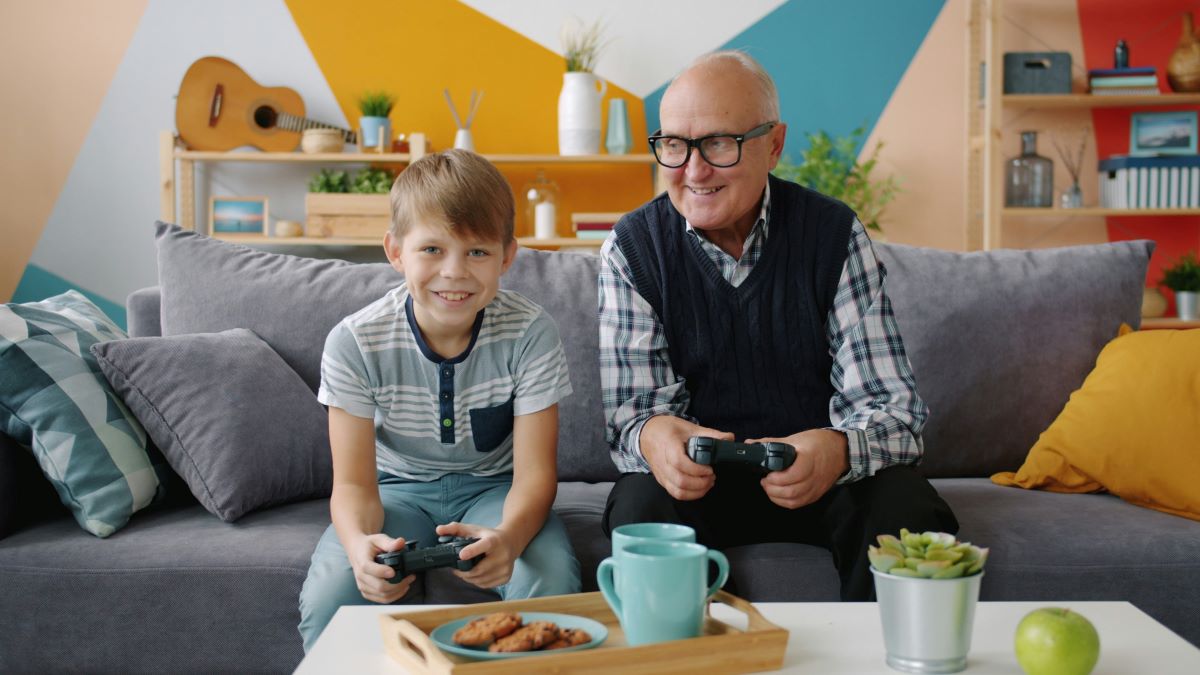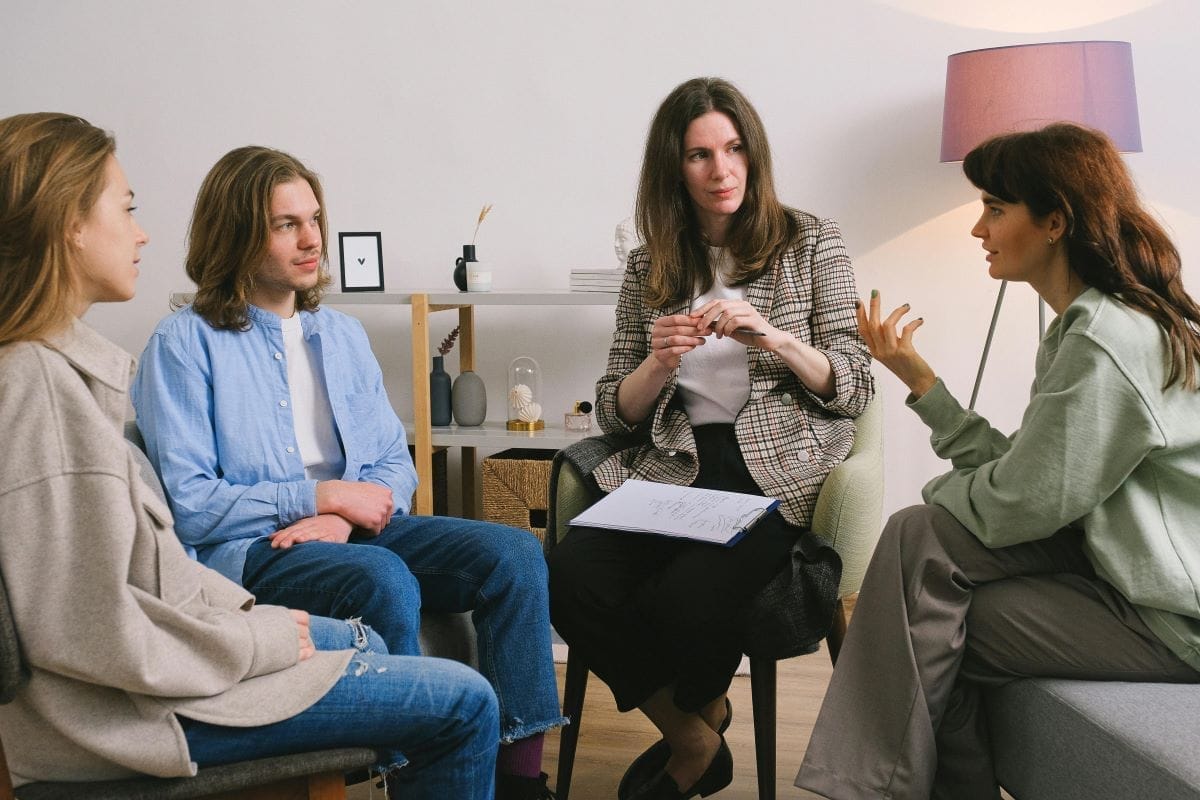Are you in North Carolina and looking for individual therapy or parent counseling?
Visit Flip Consulting and Counseling to schedule a free consultation
Written By Edla Prevette
Being the Executive Brain for Everyone: When You're Sandwiched Between Your Neurodivergent Teen and Aging Parents
You're making lists for your 16-year-old with ADHD – reminders to take medication, pack their backpack, bring their soccer cleats to practice. Then you walk into the kitchen and find yourself making the exact same type of list for your 73-year-old mother – reminders to take her blood pressure medication, bring her insurance card to the doctor, remember her purse when leaving the house.
The similarity hits you like a lightning bolt: You've become the frontal lobe for two different people at opposite ends of the developmental spectrum.
If this scenario feels familiar, you're experiencing one of the most complex sandwich generation challenges there is. According to child psychologist Dr. Emily King, who specializes in neurodivergent children and teens, this situation is more common than you might think – and it comes with unique dynamics that most sandwich generation advice doesn't address.
The Hidden Challenge: Executive Functioning for Two
"The main challenge is being the executive functioning for someone else," explains Dr. King. "When we think about by high school age, by teenagers, you know, our kids usually have other helpers in their life. They have interests, they have coaches, they have tutors, they have teachers, but we still have to do a lot of executive functioning, scaffolding and management."
This presents a unique frustration for parents of neurodivergent teens. In typical development, by high school, parents expect to step back from managing daily tasks. But with neurodivergent children, these independent skills may not come along until your child is in their 20s.
Meanwhile, your aging parents are experiencing the opposite trajectory – they're beginning to lose some of their executive functions. As Dr. King puts it: "You're over here helping your teen stay organized and remember to take their medication or remember to bring their belongings when they go to an appointment and you're like, 'Oh my goodness, I have to be the frontal lobe for this one over here too.'"

The Genetic Connection You Might Not Have Considered
Here's something that adds another layer of complexity: many neurodivergences are genetic. Dr. King points out that you might be in the prime of your life and just realizing that you too have ADHD, or you may be managing executive functioning for an aging parent who has had undiagnosed autism, ADHD, or anxiety their entire life.
"That generation did not get diagnosed with anything outside of the medical model that was going on at the time," she explains. "ADHD, autism, any type of mental health could have been diagnosed, but likely was misunderstood."
This means you could be discovering neurodivergent traits in yourself while simultaneously managing them in both your teenager and your aging parent – a realization that can feel overwhelming but also provide crucial insight into family patterns and effective strategies.
Understanding the Different Goals: Growth vs. Maintenance
While the daily management might feel identical, Dr. King emphasizes an important distinction between caring for neurodivergent teens and aging parents:
With Teenagers:
"We have a goal that when we step back, we hope they're going to grow and develop. We're pushing them a little bit more or requiring a little bit more of them... pushing them towards goals of independence."
With Aging Parents:
"We've got the opposite end of the developmental curve of life, and we're more in maintenance mode, maintenance of keeping them feeling comfortable and connected and happy. We have accepted, and we know that they're not gaining skills."
This fundamental difference in goals helps explain why the same situation can feel so different emotionally – you're scaffolding toward independence with your teen while scaffolding toward comfort and safety with your parent.
The Balance Between Enabling and Abandoning
Dr. King uses a phrase that perfectly captures the sandwich generation dilemma: the balance between enabling and abandoning. Whether you're dealing with a neurodivergent teen or an aging parent, you're constantly asking yourself: How much support is helpful versus harmful?
"We all want to not enable, but not abandon where it's all somewhere in the middle," she explains. "Whether that is supporting a child or stepping back and letting a child flounder and figure it out... it's hard to figure these things out."
Meeting Baseline Needs: The Foundation for Everything Else
One area where your experience with your neurodivergent teen can actually help with your aging parent is understanding the importance of baseline needs.
Dr. King explains: "If our teen is tired, if our teen has missed their medication, if our teen is sad, if our teen is hungry... any of these things are off about our teen. It's going to be hard for them to do school. It's going to be hard for them to remember their stuff."
The same principle applies to aging parents: If they're hungry, haven't taken their medication, are dealing with disrupted routines, or have lost their sense of control, their ability to function effectively will be compromised.
The strategies you've learned work across both situations:
Medication management systems (timers, pill organizers, backup reminders)
Routine maintenance (consistent meal times, sleep schedules, preferred activities)
Emotional regulation support (recognizing when someone needs space or comfort)

The Challenge of Transitions and Change
Both neurodivergent teens and aging adults struggle more with transitions than neurotypical individuals. Dr. King notes that "there is usually some independence or mood regression" around big changes like:
Moving to a new location
Changes in caregivers or teachers
Loss of familiar routines
New technology or systems
Major life events
"We usually have some regression around a big change," she explains. "If your aging parent has a new caregiver... the rotation in medical care of caregivers and the rotation in teachers... It is hard to keep up with all of that when you are wanting stability."
The key insight: Don't mistake temporary regression for permanent decline. Both your teen and your parent may need extra support during transitions, but this doesn't necessarily indicate that you need to take over permanently.
When Technology Becomes a Battlefield
Technology presents a perfect example of the different approaches needed. Dr. King shares a story about trying to help her mother set up Venmo to pay her back for concert tickets:
"We tried, we really did. I even had a problem setting up her [account]... I couldn't figure out how to get into her bank account and she couldn't figure out how to get me into her bank account... I was like, mom, for the rest of your life, you can write me a check."
The lesson? Sometimes things just aren't worth it. With your neurodivergent teen, you might persist with teaching Venmo because they'll need these skills for life. With your aging parent, a check works just fine.
"The second that I feel like troubleshooting something with my mom is getting in the way of the time we could be spending together connecting, it's not worth it," Dr. King explains.
Connection Over Problem-Solving
This brings us to one of Dr. King's most important points: Connection must come before correction or problem-solving. Whether you're working with your teen or your parent, if you get stuck in constant troubleshooting mode, you lose opportunities for relationship and joy.
"If I feel like I'm infringing on time that I could be connecting, solving something that's not going to be relevant or worth it. That's where I know I need to pivot and come up with a solution that's good enough."
The Unexpected Joy: Cross-Generational Connections
Here's something beautiful that often emerges in these complex family dynamics – your neurodivergent teen and your aging parent may develop amazing relationships with each other.
"My neurodivergent teen and my mom are so close. They love to play cards. They love going on trips together. He loves to hang out there. They love to talk about history," Dr. King shares.
This connection can provide several benefits:
Social engagement for both your teen and your parent
Mutual caregiving opportunities that build your teen's empathy and responsibility
A break for you when they can spend time together
Meaningful activities that don't require your constant coordination
Practical Strategies That Work for Both Generations
Dr. King suggests several approaches that can benefit both your neurodivergent teen and your aging parent:
1. Automate What You Can
Use technology and services to handle routine tasks:
Grocery delivery services
Medication reminder apps
Meal delivery when you're out of energy
Online bill pay and banking
Calendar apps with shared access
2. Recognize the Similarities in Needs
Both groups benefit from:
Consistent routines
Clear expectations
Visual reminders and lists
Reduced sensory overwhelm
Patience with processing time
Connection before correction
3. Use Your Teen's Strengths
Neurodivergent teens often have strong motor skills and can help with:
Running errands for grandparents
Technology troubleshooting (within reason)
Providing companionship
Assisting with tasks that require physical mobility
4. Set Realistic Boundaries
Ask yourself:
Does this person need ME specifically to do this task?
Is this something someone else could handle?
Am I solving a problem that actually needs solving?
Is my intervention helping or enabling?

Taking Care of Yourself: The Oxygen Mask Principle
Dr. King emphasizes that you cannot be the executive function for multiple people unless you take care of your own needs first:
"We need to think about all the things that need to be done for your parent or for your kid. There are some of those jobs that your parent and your kid wants you to be the one to do the thing. And there's nobody that can replace you doing the thing. I think we make a mistake when we think we have to be the person to do all the things."
Essential self-care strategies:
Outsource ruthlessly – use delivery services, hire help when possible, accept assistance from others
Maintain your own baseline needs – sleep, nutrition, movement, social connection
Eliminate what drains you unnecessarily (Dr. King mentions giving up alcohol because she "didn't have the energy to deal with feeling tired")
Focus on what only you can do – the relationship moments, the important decisions, the emotional support
When You Have to Choose
Sometimes you'll face impossible choices – your teen's IEP meeting conflicts with your parent's important doctor's appointment. Dr. King's advice:
"You're going to have to make a choice... You always have the option to reschedule one of those things. Be honest with everyone and do your best. You are allowed to reschedule things."
Consider:
Which event is less critical or easier to reschedule?
Which person has other support available for that specific situation?
What are the consequences of missing each event?
Can you partially attend either (join virtually, send someone else with questions prepared)?
The Bigger Picture: This Is a Season
Being sandwiched between a neurodivergent teen and aging parents is incredibly demanding, but it's also temporary. Your teen is developing skills (even if more slowly than typical development), and you're providing your parent with dignity and connection during a vulnerable time.
Research shows that about 15-20% of people globally are considered neurodivergent, and with improved understanding and diagnosis, more families are recognizing these patterns across generations. You're not alone in this complex balancing act.
Looking Forward: Building Skills and Systems
As you navigate this challenging season, focus on building systems that work for your unique family:
For your teen:
Continue scaffolding independence skills while accepting their developmental timeline
Create visual systems and routines that can be maintained with less of your direct input
Build their ability to advocate for themselves
Foster connections with other supportive adults
For your parent:
Focus on maintaining dignity and connection rather than pushing for skill development
Adapt your teen's successful strategies to your parent's needs
Build a support network that can provide backup when you're unavailable
Accept that some decline is normal and not a reflection of your caregiving
For yourself:
Recognize that you're doing something incredibly difficult and important
Build systems that support your own executive functioning
Create boundaries that preserve your energy for what matters most
Seek support from others in similar situations

The Hidden Strength of Neurodivergent Families
Finally, remember that neurodivergent families often develop exceptional problem-solving skills, empathy, and adaptability. The strategies you're learning now – visual supports, routine management, emotional regulation techniques, advocacy skills – are valuable life skills that benefit everyone in your family.
You're not just managing two challenging situations simultaneously; you're modeling resilience, creative problem-solving, and unconditional love. Your neurodivergent teen is learning what supportive caregiving looks like, and your aging parent is experiencing dignified care during a vulnerable time.
This season is hard, but it's also meaningful work that creates lasting impact across generations.
Feeling overwhelmed by the unique challenges of supporting a neurodivergent teen while caring for aging parents? You're managing one of the most complex sandwich generation situations, and you deserve specialized support.
Schedule your complimentary caregiving consultation with Edla Prevette today and discover strategies tailored to your family's neurodivergent needs, communication techniques that work across generations, and systems that can reduce your daily stress while supporting everyone in your family.
Learn More About Today's Guest Expert
Dr. Emily King is a child psychologist specializing in supporting neurodivergent children, teens, and their families. She's the founder of Learn with Dr. Emily, where she provides monthly workshops for parents and professional development for educators. You can find her valuable resources and support at: https://learnwithdr.emily.com
Edla Prevette specializes in helping sandwich generation caregivers develop effective communication strategies and reduce stress while caring for aging parents. With thirty years of experience as an educator and therapist, she provides research-based approaches that make caregiving feel more manageable, especially for families navigating neurodivergent needs across generations. Learn more at edlaprevette.com.

2024 Edla Prevette | www.edlaprevette.com | Privacy Policy | Terms and Conditions | Affiliate Disclosure
